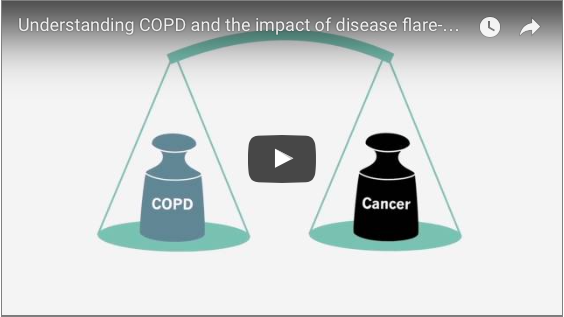How to Best Deal With COPD Flare-Ups
Written by |

People with COPD can end up being hospitalized due to exacerbations, which is when your cough gets worse and you are no longer able to breathe normally. Exacerbations severely decrease lung function, and can even lead be fatal. Really, exacerbation is another name for a flare-up.
COPD patients need to be very vigilant with their care and always be on the lookout for symptoms of a flare-up. Good hygiene and maintaining a healthy diet are really important, as is not breathing in cigarette smoke, or very cold or very humid air.
RELATED: 4 types of tests required to diagnose COPD
A COPD action plan is written instructions worked out with your doctor on what you should do when your symptoms flare up. Your COPD action plan will tell you what extra medicine to take, when to call the doctor, and when to go to the emergency room. It’s a plan that will give a measure of peace of mind when a flare-up happens so you know the best steps you should take at that time.
Having exacerbations can cause your COPD to progress faster so doing all you can to prevent them is really important. Being aware of the warning signs is the first step: more wheezing or coughing than what’s normal for you, increase in mucus and change in the color, shallower breathing, fever, confusion or excessive sleepiness, swelling of the ankles or feet.
Some things you can do to take better care of your health are making sure you get your yearly flu shot, staying away from crowds during cold and flu season, drinking plenty of water to thin the mucus, and carrying hand sanitizer for those times when there’s no place to wash with soap and water.
Recovery from an exacerbation varies from person to person. It could take weeks or possibly months. Don’t ignore the warning signs.
RELATED: 6 tips for protecting your lungs
COPD News Today is strictly a news and information website about the disease. It does not provide medical advice, diagnosis or treatment. This content is not intended to be a substitute for professional medical advice, diagnosis, or treatment. Always seek the advice of your physician or other qualified health provider with any questions you may have regarding a medical condition. Never disregard professional medical advice or delay in seeking it because of something you have read on this website.




